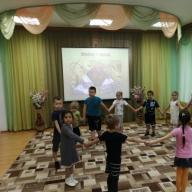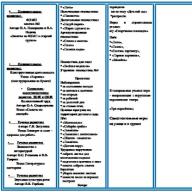One and a half years is an early age at which the foundation for all subsequent development of the baby is laid. I will not dwell here on the peculiarities of the cognitive sphere of a one and a half year old child - a lot has been written about this, so here I will focus mainly on social-emotional characteristics.
The main activity, that is, what kids do most of the time, is manipulating objects. Therefore, communication with adults takes place against the background of practical interaction, certain actions with objects. Kids no longer just need the attention and kindness of an adult, not only help, but also complicity.
Games and communication with peers, contrary to fairly widespread belief, do not yet come to the fore in children's development. Here is only the so-called “emotional-practical form of communication”, when the child expects participation from another in some matter, and the main goal of such communication is to attract attention to oneself and receive an emotional response to this. There is no joint activity at this age yet; everyone is mostly “on their own.” Of course, there is some kind of interaction, but it is not constant and is just being formed.
A child at this age still greatly needs a close adult, so the question of visiting the GKP becomes very ambiguous.
Let's first look at what a short-term stay group can give your child?
Firstly, if a child at this age successfully adapts to new conditions, then there is a very high probability that subsequently it will be easier for him to get used to new circumstances and be more independent.
Secondly, the development of a child is in the hands of professionals who have the necessary knowledge, skills and abilities to competently solve the problems of raising and developing a child. That is why so often children attending child care institutions begin to make great progress quite quickly.
Thirdly, of course, the process of developing communication skills goes somewhat faster. Indeed, a child develops genuine interest in a peer and full-fledged play much later, but, of course, the formation of communication skills in a children's group environment is greatly stimulated. However, you should not expect quick results here. Development follows certain patterns; the age of peers comes closer to 3-4 years.
There are no “contraindications” to visiting the GKP at this age, as such. Basically, all the difficulties that arise are related to the child’s adaptation process.
It would seem that there are advantages, but the disadvantages are relative, which means the answer to the question “Is it worth sending a 1.5-year-old child to the GKP” would be “Yes.” Not really.
At this age, the child still greatly needs a close adult, who acts as the main character on the stage of the child’s development. Therefore, I would recommend in this case, if you want to give it to the State Committee for Public Policy as soon as possible, wait up to two years (maybe a little earlier). Still, as children approach two years of age, self-care skills are better developed, speech is more developed, facilitating communication, and they are more interested in their peers. There is also more independence.
At this age, it is better to gently prepare the baby for kindergarten, and at the same time develop him, in various “mother and baby” classes. At first, the kids are there with their mothers, and then, gradually, they learn to study and play alone. The duration is usually a maximum of 1.5 hours. Moreover, very often these classes are held in kindergartens and children's centers, which you can later go to either as part of the community center or for a full day, which greatly simplifies subsequent adaptation.
It is also worth adding one very important thing here. All kids are very individual, both in their personal qualities and in everything else. Science has certain ideas about development standards, what and how a baby should be able to do in a specific period of time. However, individual characteristics, the “scatter” can sometimes be six months or even more for certain parameters (!!!).
There are no criteria for “readiness” for gardening, as such, especially at such a young and tender age as one and a half years. However, there are certain “indicators” that will subsequently facilitate the child’s adaptation to the GKP and make his stay there more comfortable:
The more developed a child’s self-care skills are, the better.
The longer your baby can do things independently, the better.
If your baby lets you go easily enough - he can be with his grandparents, friends, etc., the easier it will be for him to get used to the new teacher.
Of course, all these indicators will be much higher by two years. And my interest in my peers is already somewhat stronger than when I was a year and a half old. That’s why it’s better to go to the GKP closer to two years (and later). It will be much easier for the baby, because he will be more independent and more capable of communication. A year and a half is still too early. Although there are, of course, exceptions. At one and a half years old, it is better to actively “train” the baby, bringing his regime closer to the potential regime of kindergarten, take him to various classes where he will develop and gradually let go of his mother, and also pay special attention to the formation of self-care skills. This will be the best decision.
Unfortunately, not all parents have the opportunity to wait until a certain age. A variety of circumstances may arise, and then the question of whether it is worth sending the child to the GKP turns into a necessity.
I want to assure parents. There is nothing scary about this, you are not breaking the child’s psyche and are not abandoning him with your decision. Just if you have decided to give your baby away - do this as competently as possible, and there will be no harm to the baby.
First, choose your child care facility carefully (if, of course, you have such an opportunity). This is not so easy to do, but the Internet makes this task much easier. Choose a kindergarten (or children's center) with a good play environment, a small number of children in the group and professional teachers.
Secondly, approach the process of adapting your child to the group very carefully. A lot of materials have been written on this topic, and teachers and psychologists will help you choose an individual strategy, so I’ll briefly say only about the most important things. You need to adapt your child smoothly and carefully - no need for shock therapy, teach your baby to let you go gradually. Establish contact with the teacher, tell him as much as possible about your child - it will be easier for him to work with him. And, under no circumstances, do not leave “in English”! Be sure to say goodbye to your child. Many mothers and fathers think that if they quietly leave while the child is busy with something, they will thereby save him (and themselves) from the tears of parting. This is not true. The child will then see that the adult has disappeared and will cry later, just without you. Moreover, this can create anxiety in the child, which can come back to haunt you later. Mom and dad shouldn't just disappear. Say goodbye, say you'll be back. The tears of your baby are very painful for parents, but it is important to understand that this is a manifestation of emotions. You leave - the baby is sad, and he expresses it the way he knows how - with tears. But, unfortunately, crying during the adaptation process is often inevitable. And, believe me, after a while you will see how your baby, instead of tears, will joyfully run to the group, forgetting to even say goodbye to you.
Thirdly, be positive. It is always difficult for a mother to let go of her child, she worries about him, and this is absolutely normal. However, if you make a decision, follow it. Look at the positive things you do for your child - forming the foundations of independence in him, stimulating his emotional and cognitive development. Try not to show your worries to your baby; he feels you well. First you let the child go, and then it will be easier for him to let you go. In my practice, there have been very few cases where a child could not adapt to kindergarten. But when this happened, most often the reason lay in the parents, who did not want and were not ready to let the baby go - and, without realizing it, sabotaged the process.
So. If you have the opportunity to wait, wait. Start with activities where the child will smoothly get used to new conditions and learn to let you go.
If you can’t wait, feel free to give, most importantly, be in tandem with teachers and psychologists. They will always be able to help you resolve any difficulties that arise. You and your baby will succeed, in any case.
Still, try not to rush. There will be time with the kindergarten.
Teachers are asked this question with enviable frequency. Opinions vary, and any mother can find information about both the benefits of attending kindergarten from an early age and the dangers of weaning from mother before the age of three. Who is right?
Facts against
Some studies in different countries show that until the age of 3, a child is very strongly attached to his mother and is not ready to be separated. This explains several factors:
Until the age of three, a child is psychologically attached to his mother. American scientists conducted research and found that a child from 1.5 to 3 years old can only spend a very short time without his mother in peace.
Physiologically, all children are developed differently, and at the age of 1.5 years, not everyone can independently use a spoon, get dressed, go to the potty, or be able to explain their desires and needs
Social skills in a child under 3 years of age are not developed. Many mothers have probably noticed that up to school age, the baby prefers to communicate with adults or older children, and is not ready for close communication, much less friendship with peers.
Facts for it
Breaking away from the mother, the child will be more independent, since he is forced to adapt to the new environment, and, undoubtedly, will learn new things faster than at home. For example, we can consider the situation for mothers in Israel: maternity leave there is only 26 weeks.
In addition, modern nurseries use fashionable teaching methods for young children, which are often unknown to parents.
Opinion
Marina Petrova, family lawyer at the ATKP law firm, mother of two children:
“I think it’s logical to set the period of maternity leave no more than the mother needs for breastfeeding. Usually, this is limited to one year. I personally had the following experience: the first child was given away, guided by the general opinion that it should not be earlier than 3 years. The garden was just wonderful, excellent teachers, and with other attributes that should be at an expensive kindergarten. The child cried every day, as he was already used to being at home. They decided to experimentally take the youngest daughter, at one and six years old, to a regular kindergarten near the house. , and is extremely rarely ready to agree to an alternative in the form of visiting his beloved grandmother. And when at home, he constantly looks at the photo of his kindergarten group. That’s the experience.”
In real
When weighing all the pros and cons, we should not forget that the most important and significant reason why a child is sent to kindergarten from the age of 1.5 years is the inability of mom or dad to stay at home with the child. There are many reasons for this situation, but if there is no way out, you should adhere to some rules:
1. Accustom your child to kindergarten gradually. First, go on a visit together, play with toys, get to know the teacher, get used to the environment
2. Choose your kindergarten carefully. Find out everything down to the smallest detail: where and how children eat, play, walk, relax, etc.
3. In your free time, try to devote more time to your child, do not “dump” your child into cartoons - nothing can replace a child’s communication with his parents.
Finally
Whether or not to send a child to kindergarten under 3 years of age is the individual choice of each parent. Psychologists have opposing opinions, world practice is also ambiguous, one thing is obvious - if you need to go to work and leave your child with no one, he will not be able to sit at home alone. We wish you to weigh all the pros and cons and make the right decision for your family! The future psychological well-being and life success of your child depends on it!
Every parent comes to a point in their life when they have to decide whether to enroll their child in kindergarten.
How many people, so many opinions, so it is very difficult to find the correct answer to the question regarding whether a child needs a kindergarten.
You need to weigh the pros and cons before making decisions and coming to a decision. Let's find out together whether a child needs kindergarten.
And most importantly - the child adapts to society, learns to interact with different people and work in a group, communicate with peers and adults, in the future it will be much easier for him to get used to the team.
If mom has ability and desire to teach a child independently, then in this case, he may not be sent to kindergarten.
But it is worth remembering that this is a big responsibility and hard work.
At home for a child much harder to concentrate. Also, the child may not go to kindergarten if a nanny and tutors are hired for his education.
Now there are many special centers and studios for children, where they are taught and trained.
The advantage of such centers is that the child still ends up in a group at an early age, but he does not have to spend the whole day there, eating and sleeping. He only comes to class.
There are also special children's camps and events.
Advantages and disadvantages of preschool educational institutions
Does my child need to go to kindergarten? Only parents decide whether or not a child should go to kindergarten. This is not compulsory like school.
Therefore, if you have the opportunity to choose, you can weigh all the advantages and disadvantages of visiting a kindergarten and decide what will be best for the child.
Cons of kindergarten:
Advantages of kindergarten:
How to teach a child to stand up for himself? will help you!
Psychologists' opinion
Is it worth sending your child to kindergarten? Surprisingly psychologists advise not to send your child to kindergarten rather than to send.
Regarding socialization, some people believe that it is not correct that kindergarten helps children better adapt to society.
Getting into a team at such an early age, a child loses his individuality and inheriting others, becomes “like everyone else.”
Most psychologists believe that before the age of 6, a child needs to strengthen connections with his family and loved ones as much as possible, because 11 years of school lie ahead and communication with family will not be as frequent.
Answering the question “does a child need kindergarten,” most psychologists will answer that it's up to the parents to decide.
If there is no special need for a preschool institution, it is possible to receive education at home, then you should give preference to the second option.
You just need to visit more often, so that children can communicate with each other, go to clubs and sections, perhaps to some children's centers and so on.
If it is difficult for a child to adapt, he does not want to go to kindergarten, and parents have the opportunity to stay at home with him, then there is no need to torture the baby. This will not lead to anything good.
Consequences of not attending kindergarten
What if the child does not go to kindergarten?
How will this affect him?
Previously, it was believed that if a child did not go to kindergarten, then he it will be more difficult to adapt to life, improve relationships at school, etc.
But now we can refute these. Education in a preschool institution does not always bring only positive things. Firstly, it all depends on the child himself.
If he is calm and calm on his own, no kindergarten for him won't help you become more talkative.
Secondly, if parents have the opportunity to give their child everything the same as kindergarten, but only at home, then it’s worth thinking about this option. Perhaps this is even better.
The main thing is to engage with the child, teach him so that he can do everything that children his age can do. Letting him communicate more with peers and adults is important.
Lack of kindergarten in a child’s life will not affect him negatively. It is not a mandatory step in development. Everything that is given in the garden can be obtained at home.
Especially in our time, when there are various development centers, children's rooms, sections and events. Mothers can give the child everything he needs, the main desire.
So does your child need kindergarten? It is difficult to answer this question unambiguously.
Every parent, teacher and psychologist your opinion on this matter.
It is important to know what the child wants and what he needs at one time or another in his life. If there is an opportunity not to go to kindergarten, then why not take advantage of it?
The main thing is that this should not be to the detriment of the baby’s development. We need to take care of his education and socialization.
Should I send my child to kindergarten? Psychologist's opinion:
Disputes about their relevance are in second place after discussions on the topic of vaccinations. The majority, in the old-fashioned way, are convinced that visiting a child care facility contributes to the socialization of the child and the development of his skills of interaction between people. Others categorically argue that kindergarten is a prison for a child.
Socialization of a child - what is it?
The massive emergence of kindergartens began in the Soviet period of our history, when it was necessary to free up women to work on the construction sites of communism. Having children from a young age in organized groups fit perfectly into the idea of raising a “new” person in the spirit of collectivism.
Children's “socialization” in the understanding of modern psychologists and teachers is the development of adaptation to life in society, to communication with others: family members, peers, work colleagues. A socially confident person “hears” his interaction partner, knows how to negotiate, say “no,” express a personal opinion, make concessions, and at the same time remain an individual, himself.
What modern scientists say
Doctor of Sciences, Canadian psychologist G. Neufeld, in the book “Don’t Miss Your Children,” states that the ability to establish relationships (adequate for one’s age) is formed in a child by the age of 6. He warns society that placing children too early for long hours in groups of their own kind interferes with the development of individuality and leads to the education not of individuals, but of “cogs” of a single collective mechanism.
Russian psychologist L. Petranovskaya also wonders Is it worth sending your child to kindergarten?, if you can successfully teach communication with peers outside of its walls. Kindergarten, in her opinion, is just a convenient service for parents that has no “pedagogical meaning.”
The genetic program, embedded in the human psyche by nature and worked out over centuries, provides for the likelihood of survival of a defenseless baby in a small environment of recognizable OWN people - parents and relatives of different ages.
Leaving a baby in an unfamiliar place among strange adults and a crowd of children is extremely stressful, which can leave a traumatic mark for life. A small child has no concept of time, he does not understand the consolations that his mother will definitely come and take him away. He doesn’t calm down, he just gets tired of his own crying (essentially a cry for help). The helpless little man experiences panic fear, because in the understanding of the baby, his mother left him, abandoned him. A basic need suffers - the need for security. Trust in the mother is destroyed, and at the same time in the whole world, frightening with its unknown. The situation of fear of losing a mother (especially a repeated one) can form the basis of neuroses, depression, lack of initiative and addictions that manifest themselves in older age and adulthood. Psychological and pedagogical research has shown that some primary schoolchildren and even teenagers continue to experience severe anxiety during prolonged separation from their attachment figure.











